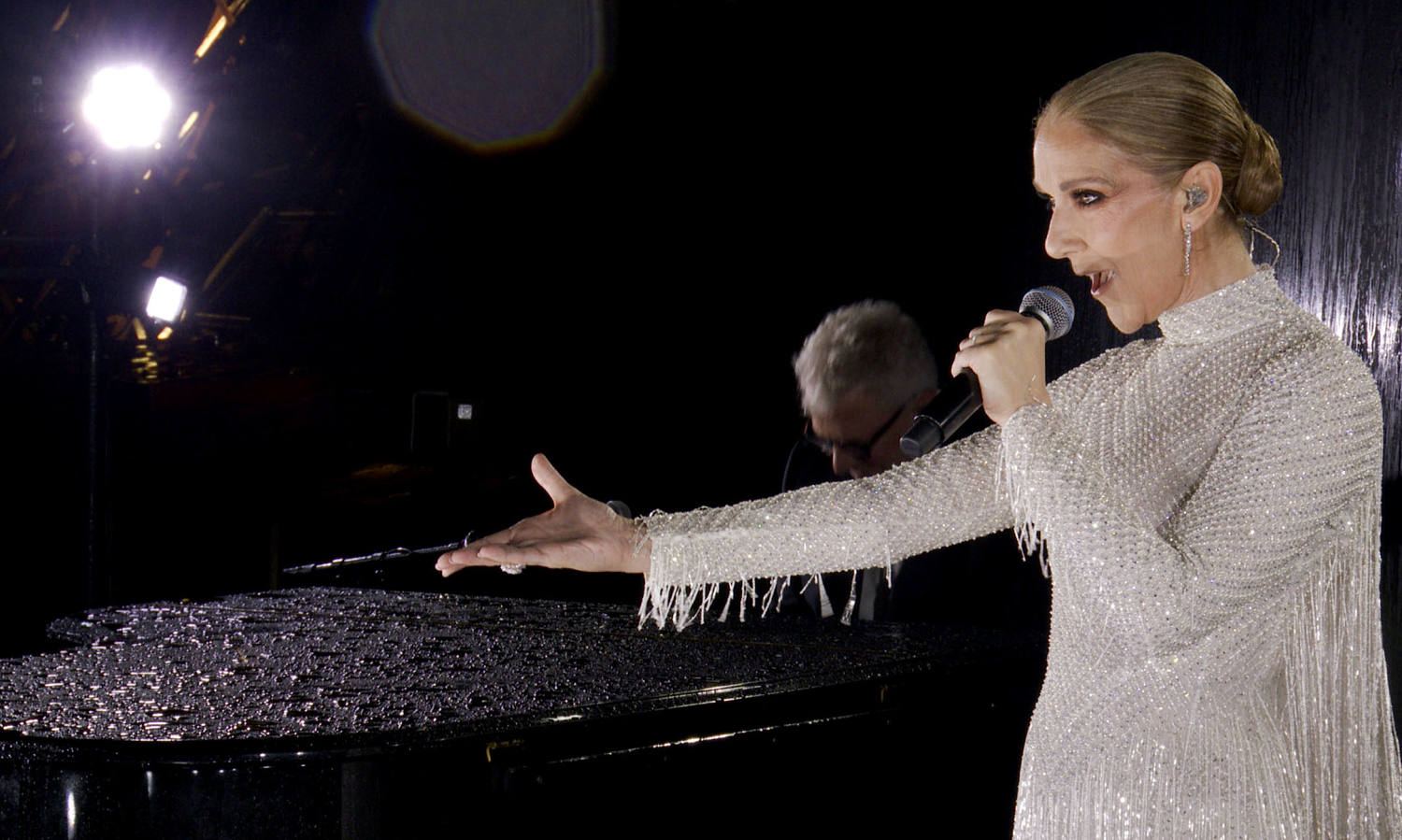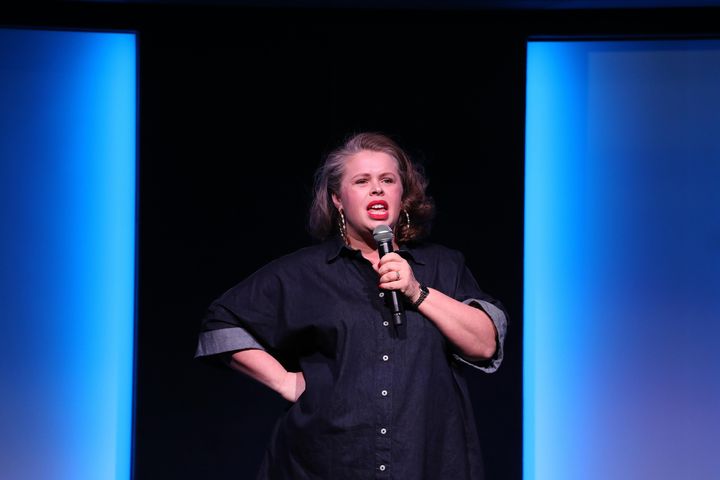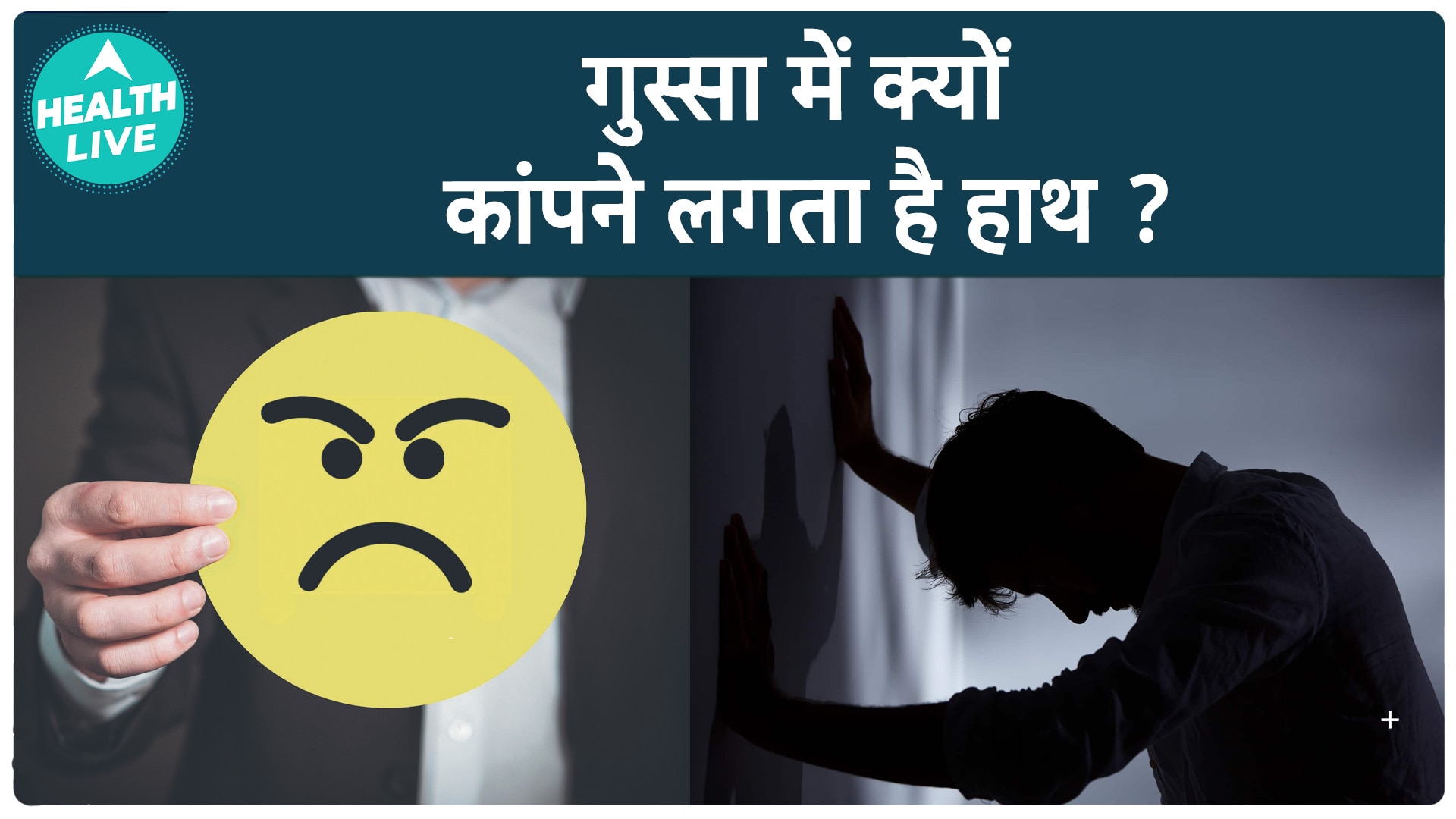Céline Dion's health has worried fans ever since she announced that she was diagnosed with stiff person syndrome, a rare neurological disorder, in 2022. The legendary pop icon had to cancel all performances as she figured out how to navigate the condition, which causes muscle spasms and have affected her ability to sing. The superstar, 56, has returned to the stage one time since her health issues — — and has been open with fans about her recovery journey.
She also starred in a documentary, released in June on Prime Video, around her efforts to take the stage again. And she regularly shares glimpses of her life with stiff person syndrome on her Instagram account. Here's everything the singer has shared about her health and efforts to return to the stage.

Dion had been saying for months that she was working on building up her strength, despite her stiff person syndrome diagnosis, to be able to perform again. The singer did just that at the opening ceremony of the 2024 Paris Olympics, where she sang “L’Hymne à L’Amour” by Edith Piaf. She later released , sharing how much the night meant to her.
Before her Olympics performance, her most recent public outing was in late June, a surprise appearance at the NHL draft to announce the Montreal Canadiens' first pick of the night. Dion also attended the premiere of her documentary in New York City in mid-June and posed on the red carpet. When speaking to the audience, she shared how glad she was to find herself in front of a crowd for the first time in years.
In her since revealing her stiff person syndrome diagnosis, aired in mid-June 2024, Dion told TODAY's Hoda Kotb that her voice is getting stronger and that she believed she would be healthy enough in the near future to return to the stage. "I believe in myself, in my bravery," she said, adding that she may still need to call off performances from time to time: "I know that I have a good team right now (who will say), ‘No show tonight.' It’s going to be hard.
It will probably happen." Still, she will not let her disease "control my life," she said. "I’m going to come onstage because I’m ready.
And my vocal cords will not scare me because I’m going to be ready, and I’m going to hit those notes." Dion’s physician, Dr. Amanda Piquet, also told Hoda that Dion has made "significant progress" with her treatment since the documentary was made.
Dion previously told in May that her "happiness has come back" in recent years since publicly revealing her diagnosis. "It has been a big burden on my shoulders, and a lot of that weight’s gone ..
. because now I can just focus on reality. That’s wonderful," she said.
In a Vogue France interview published the prior month, she shared that she's "(learning) to live with" her illness, adding that she's been receiving vocal, physical and athletic therapy five days a week. In February, Dion presented the last award of the night and at the 2024 Grammys. “When I say, I’m happy to be here, I really mean it from my heart,” she said.
When first announcing her documentary in January 2024, Dion's team shared a short update on her health, writing that the singer is "on the road to resuming her performing career." “This last couple of years has been such a challenge for me, the journey from discovering my condition to learning how to live with and manage it, but not to let it define me,” Dion said in the release. Stiff person syndrome is a progressive, neurological disorder with features of an autoimmune disease.
It causes muscle stiffness in the torso and limbs, and a heightened sensitivity to noise, touch and emotional stress, which can set off painful muscle spasms, according to the . The condition can have a severe effect on quality of life. People with stiff person syndrome may develop hunched posture and struggle to walk or move.
They may also fall more frequently because they lack the muscle reflexes to catch themselves, which can lead to injury. Stiff person syndrome is rare, affecting only one or two people in a million, according to . It affects twice as many women as men, according to the National Institutes of Health.
It’s a “very serious condition,” Dr. Desimir Mijatovic, a pain medicine specialist at the Cleveland Clinic in Ohio, tells TODAY.com.
“People can have difficulty with movement and difficulty with living their lives.” Speaking about Dion specifically, he notes there are many muscles involved with singing, especially in front of a huge audience. “Those muscles are prone to spasm or tightening up, and I’m sure it can affect the way that she sings and performs,” Mijatovic says.
“If those muscles aren’t working properly, that can make it very difficult.” Dr. Scott Newsome, director of the Stiff Person Syndrome Center at Johns Hopkins Medicine, called it “a devastating disease” in a explaining the disorder.
“It’s quite painful, so people will go around with these chronic pain syndromes, go from one doctor to another trying to figure out what’s causing these really bad spasm pain syndromes. Sometimes they get labeled crazy.” Because stiff person syndrome is so rare and can mimic other conditions, it takes about seven years on average for people to get diagnosed, Newsome added.
There is no cure for stiff person syndrome, though symptoms may be kept under control with certain drugs, as well as physical, occupational and aqua therapy, according to . Patients may initially feel an aching discomfort, stiffness or pain, especially in the lower back or legs, but also in the shoulders, neck, and hips, according to the . With time, the leg muscles stiffen, with one leg often more affected than the other, leading to a stiff walking gait and a hunched over posture, it noted.
Patients also develop muscle spasms, which can be triggered by common sounds, such as a car honking, “causing people to freeze like a statue and fall,” according to the . “Just walking down the street, they could have a spasm and fall,” Newsome said. Not being able to get regular sleep, loud noises and stressful situations can worsen the symptoms, Mijatovic notes.
The director of Dion's upcoming documentary, Irene Taylro Brodsky, described to Hoda what it was like to witness one of the singer's medical attacks. "Her body was enduring something that was unimaginable. And I wasn’t sure if she was aware of it.
And I wasn’t sure if she was going to survive it,” Brodsky said. The exact cause is still a mystery, but it appears to be an autoimmune response gone awry in the brain and spinal cord, according to the NIH. The disorder is frequently associated with other autoimmune diseases, such as diabetes, thyroiditis, vitiligo and pernicious anemia, the NIH added.
Dion's condition is being managed with IVIG, or intravenous immunoglobulin, which helps manage the autoimmune aspects of the condition. She also sees a vocal therapist and physical therapists and takes medication. She told Hoda about relying on high doses of Valium to control her muscle spasms.
Generally, Piquet says treatment for stiff person syndrome usually involves immune treatment, which includes IVIG, and symptom-focused treatment, which includes medication, such as muscle relaxers, and various physical therapies. In December 2022, Dion revealed she’d been diagnosed with stiff person syndrome and would be postponing tour dates due to the condition. Five months later, in May 2023, she canceled all remaining tour dates.
“We now know this is what’s been causing all of the spasms that I’ve been having,” she in the emotional video posted on her . “Unfortunately, these spasms affect every aspect of my daily life, sometimes causing difficulties when I walk and not allowing me to use my vocal cords to sing the way I’m used to.” “I’m working hard with my sports medicine therapist every day to build back my strength and my ability to perform again, but I have to admit it’s been a struggle,” she continued.
“All I know is singing. It’s what I’ve done all my life, and it’s what I love to do the most." Dion performed for the first time since announcing her stiff person syndrome diagnosis at the Paris Olympics 2024 opening ceremony.
In her June 2024 interview with Hoda, asked about performing again, she said: "I’m going to go back onstage, even if I have to crawl. Even if I have to talk with my hands, I will ..
. not just because I have to, or because I need to. It’s because I want to and I miss it.
" She did not reveal a specific timeline for touring again and previously opened up to Vogue France about the roller coaster of deciding when she may be ready. “For four years I’ve been saying to myself that I’m not going back, that I’m ready, that I’m not ready. .
.. As things stand, I can’t stand here and say to you: ‘Yes, in four months,'" she told the magazine.
While every person’s situation is different, some people are able to manage the symptoms of stiff person syndrome "to the point that their condition is stable (and) they can continue to live fairly mobile (lives)," Mijatovic, who is not involved in Dion's care, says. “People like Céline are oftentimes able to overcome a lot of amazing things, and I definitely think it’s something that’s possible,” he adds. While in Germany in 2008 for the Taking Changes World Tour, Dion remembers realizing something was wrong, she told Hoda.
“I was fine, and I had breakfast, and then my voice started to go high and then I ...
felt like I could not control it. I was skidding. I was like, I could not control anything," she recalled.
Getting ready for her next show in another city, she had to cut her soundcheck short. "I had to find a path. (My vocal cords were) squeezed,” she said.
“So I said, ‘I’m just going to do two songs.’ Normally I sing, like, almost an hour to 45 minutes for a sound check.” Dion described trying to sing with stiff person syndrome as “somebody is strangling you.
” Eventually, she also started experiencing muscle spasms, balance issues and trouble walking. “It feels like if I point my feet, they will stay in a (stuck position), or if I cook — because I love to cook — my fingers, my hands, will get in a position," she told Hoda. "My feet — it’s cramping, but it’s like in a position of, like, you cannot unlock them.
” “Sometimes, when it’s very severe, it can break some ribs as well,” she added. Dion told Hoda that she was taking high doses of diazepam, also known as Valium, to relax her body and be able to perform when she was struggling with muscle spasms — which had not yet been diagnosed as stiff person syndrome. "I did not know, honestly, that it could kill me,” she said.
“I would take, for example, before a performance, 20 milligrams of Valium, and then just walking from my dressing room to backstage, it was gone already." "You get used to it. It doesn’t work,” she recalled, adding that she then needed more.
She was taking 90 milligrams a day at one point, an amount that can be lethal. She said she weened herself of the medication and others with the help of doctors during the pandemic. For many years, Dion didn’t understand what was causing her symptoms and was also juggling the responsibility of caring for Angélil, who died in 2016 of throat cancer.
“We did not know what was going on. I did not take the time. I should have stopped, take the time to figure it out,” she told Hoda.
“My husband as well was fighting for his own life. ..
. I had to raise my kids. I had to hide.
I had to try to be a hero. " When the pandemic hit, she started to search for answers. “It probably sounds very strange to say this to you, but when I was diagnosed, I was happy.
I was finally able to move with the wave, not against it,” she told Vogue. Dion announced in October 2021 that she was due to medical issues. explained that she was “experiencing severe and persistent muscle spasms which are preventing her from performing.
" A few months later, Dion had to . A attributed to the change to ongoing muscle spasms and her recovery "taking longer than she hoped." “Well, here we are again, and I’m so sorry we have to change our tour plans for Europe one more time," in a video posted to her Instagram announcing the scheduling change.
"First, we had to move the shows because of the pandemic, now this is my health issues that is causing us to postpone some shows and unfortunately we have to cancel some too.” She added that the “good news” is she’s “doing a little bit better.” Dion shared the news that she had been diagnosed with stiff person syndrome with fans for the first time in posted Dec.
8, 2022. At the time, Celine Dion also rescheduled her spring 2023 shows to 2024 and canceled eight of her summer 2023 shows. Explaining why she decided to share, she told Hoda: “I didn’t want to live in this bunker anymore .
.. because the burden was so heavy.
And I was like, ‘OK, I need to just do what I need to do to do the best. But I need to also tell the world what’s happening.” On May 26, 2023, she officially canceled the rest of her world tour due to her health issues.
“I’m so sorry to disappoint all of you once again,” she said in a statement. “I’m working really hard to build back my strength, but touring can be very difficult even when you’re 100%. It’s not fair to you to keep postponing the shows, and even though it breaks my heart, it’s best that we cancel everything now until I’m really ready to be back on stage again.
I want you all to know, I’m not giving up...
and I can’t wait to see you again!” She shared some of her stiff person syndrome treatment plan in an interview with Vogue France, including various therapies five days a week. “I work on my toes, my knees, my calves, my fingers, my singing, my voice,” she said. “Either I train like an athlete and work super hard, or I switch off and it’s over, I stay at home, listen to my songs, stand in front of my mirror and sing to myself.
” “I’ve chosen to work with all my body and soul, from head to toe, with a medical team. I want to be the best I can be. My goal is to see the Eiffel Tower again!” Dion gave an in-depth look at her journey with stiff person syndrome, from her to her efforts to perform again, when speaking with Hoda for the June 11 primetime special.
Her intimate documentary came out on June 25 on Prime Video. Dion surprised fans with an emotional performance from the Eiffel Tower at the opening ceremony of the Paris Olympics. She sang a stunning rendition of Edith Piaf's “L’Hymne à L’Amour.
” The song was originally released in 1950 following the 1949 death of Piaf’s lover Marcel Cerdan in a plane crash. Lindsay Lowe has been a regular contributor to TODAY.com since 2016, covering pop culture, style, home and other lifestyle topics.
She is also working on her first novel, a domestic drama set in rural Regency England..


















